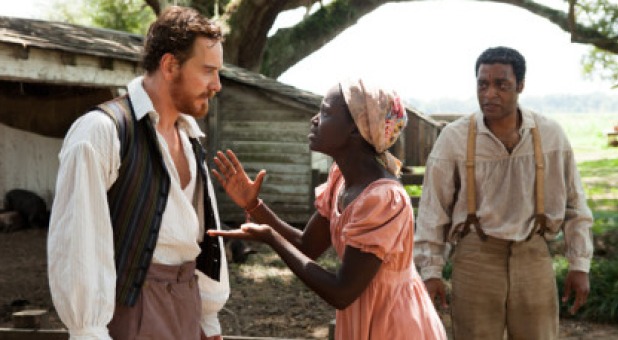The new movie 12 Years a Slave may depict a bygone era in American history, but religious leaders hope it might spark increased attention about present-day race relations.
“It is the elephant in the room,” said the Rev. Barbara Williams-Skinner, a facilitator of the National African American Clergy Network, speaking at a panel discussion after a recent screening.
“If you even raise race today, you are ‘race baiting.’ You’re playing ‘the race card,’” said Williams-Skinner, who is also the CEO of the Skinner Leadership Institute.
The movie gives an unflinching account of the true story of Solomon Northup, a free man living in Saratoga Springs, N.Y., who was kidnapped and spent a dozen years as a slave in the South, wrongly accused of being a Georgia runaway.
Clergy and activists hope the movie that opens Friday—with its depiction of whippings and other degradation—will be a catalyst for churches to recall slavery and address the current state of the nation’s race relations. They point to controversies from the killing of Florida teen Trayvon Martin to the Supreme Court striking down a major provision of the Voting Rights Act.
The Rev. Michael McBride, a Berkeley, Calif.-based advocate on mass incarceration with PICO National Network, said he hopes the movie will encourage people to view the punitive aspects of U.S. society as excessive and not “grounded in Scripture.”
The film sometimes addresses questions of faith, including a slave master quoting from the Bible at an outdoor worship service, legitimizing his authority to control and whip the slaves gathered before him.
“The faith that they had in the film was really capitalism in drag,” said the Rev. Otis Moss III, pastor of Trinity United Church of Christ in Chicago, speaking of the slave owners depicted in the movie.
Galen Carey, vice president of the National Association of Evangelicals, said there’s no “one step” that will move the church on race relations. But “authentic encounters” in local churches can help.
A small group at his Columbia, Md., church discovered a sharp racial disparity among its members over whether they’d listed themselves as organ donors on their driver’s licenses. Black members recalled notorious medical experiments on unsuspecting black men in the mid-1900s.
“Every single African-American in our group said, ‘No way would I do that ’cause we can’t trust those people,’” Carey said. “And every white person said, ‘What do you mean?’”
See an error in this article?
To contact us or to submit an article






















